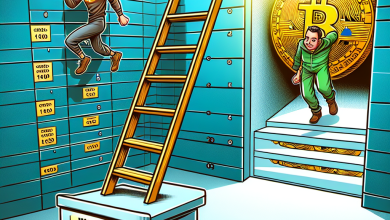US investor: Short seller targets Wall Street giant Carl Icahn
The short seller Hindenburg Research has found a new target, and a very prominent one at that: US investor Carl Icahn. The 87-year-old billionaire is a legend on Wall Street. He is known for buying into companies to pressure senior management and drive change. Most recently, the largest positions in his portfolio included auto parts supplier Dana, IT services provider Xerox and shares in Icahn’s own holding company, Icahn Enterprises (IPE).
Now the corporate hunter becomes the hunted himself. Hindenburg’s allegations are serious: several of the holding company’s business units are overvalued by up to 75 percent. The portfolio of Icahn Enterprises has probably suffered high losses in the past year: The investor burned an estimated 471 million dollars with bets on rising prices and another 272 million with bets on falling prices. In addition, IPE is highly indebted, which is becoming a problem given the rise in interest rates. Nor can Icahn support his holding company with his private assets. His shares in the company accounted for around 85 percent of his total wealth.
A particularly piquant accusation: Icahn Enterprises’ dividend payments are not covered by the cash flow and investment performance. Since 2014, the company has raised its payout to shareholders three times, most recently in 2019. The quarterly dividend currently stands at $2 per share. “Icahn used money from new investors to pay dividends to existing investors,” Hindenburg said in a release. This is reminiscent of a “Ponzi Scheme”, a pyramid scheme named after the fraudster Charles Ponzi.
“The performance speaks for itself”
Wall Street legend Icahn, an impostor? Hindenburg has his own reasons for this attack: IPE is itself listed on the stock exchange – and Hindenburg sold the stock short. So the company is counting on investors to follow its arguments, sell Icahn shares and let the price crash. This calculation has worked so far. Immediately after the report was released on May 2, Icahns Holding’s share price fell more than 20 percent.
Carl Icahn denies the allegations. In a public statement he writes: The only intention behind Hindenburg’s report is to make a profit from the short position taken at the expense of IPE shareholders. “We believe that IPE’s performance will speak for itself over the long term, just as it always has,” writes the investor.
The company is operating from a “position of strength” and had $2 billion in cash or cash equivalents on its balance sheet as of the end of March. Investors should form their own opinion on the company’s health by reviewing the filings IPE has posted on its Investor Relations page and filed with the SEC. Hindenburg also refers to these publicly accessible documents.
A weakness of the Hindenburg report is that the filings with the SEC are not current, but date from the past quarter. A lot of the portfolio may have changed since then. However, a loss of the magnitude described by the short seller could hardly be made up within three months.
Hindenburg has already caused a stir among stockbrokers several times this year. In January, the short-seller accused Indian billionaire Gautam Adani’s group of companies of accounting fraud and market manipulation. The share price plummeted, and the Adani Group’s ties to the Indian economy caused unrest. Gautam Adanis Holding, Adani Enterprises, has yet to recover from the blow.
The investigations are still ongoing. However, there are those who say that Hindenburg’s allegations were exaggerated. For example that of Mark Mobius, former star fund manager and expert on emerging market stocks: The Hindenburg report on Adani was not entirely correct, he told the Indian business magazine “Business Today”.
In March, Hindenburg targeted Block: the payments service provider, formerly called Square and founded by ex-Twitter boss Jack Dorsey, inflated its user numbers and enabled users of its platform to engage in criminal activities. In this case, too, the share price fell significantly without having recovered since then. However, Block’s share price was already in a downtrend.
That truck thing
Hindenburg Research and its boss Nathan Anderson (aka Nate) can look back on numerous successes. Their biggest coup involved Nikola, a manufacturer of hybrid trucks: The short seller was able to prove that the company had simply let a truck with an alleged hydrogen drive roll down a hill. The share price plummeted, the then Nikola boss Trevor Milton lost his job and ended up in court.
So now Carl Icahn. Given Hindenburg’s track record, the investor would do well to wrap up warm. On the other hand: Icahn has been active on the stock exchange for more than 60 years. He should know what he’s doing. The outcome of the duel is open. One thing is clear: Hindenburg against Icahn – this is a duel in the top league.
One person who has already decided on a side is Bill Ackman: The investor and head of the hedge fund Pershing Square Capital shared the Hindenburg report on his Twitter profile and attested to the report’s “karmic quality”. The two Wall Street greats have not been able to stand each other since they clashed in 2013 through diet products distributor Herbalife.
At the time, Icahn was betting that the company’s share price would rise, while Ackman held against it. In “Battle of the Billionaires,” Ackman called Icahn a liar and claimed he had a bad reputation on Wall Street. Icahn lashed out: He wouldn’t invest in Ackman even if he was the last man alive. Incidentally, Herbalife’s stock price today is pretty much where it was ten years ago. Now the next round of the duel is probably running.
Also read: These are the female stars of the hedge fund scene






